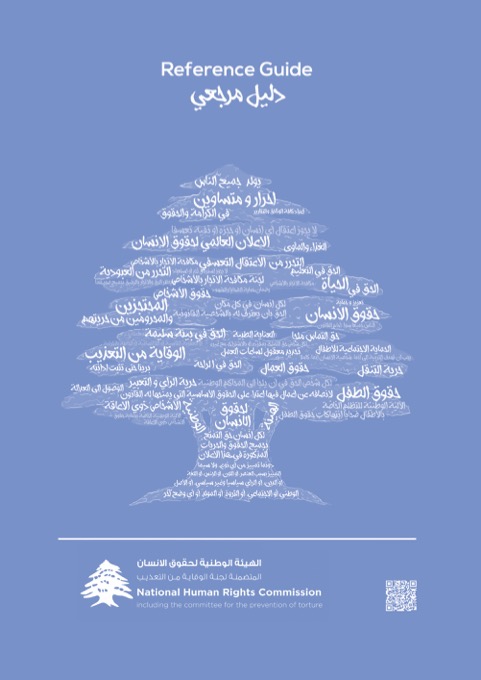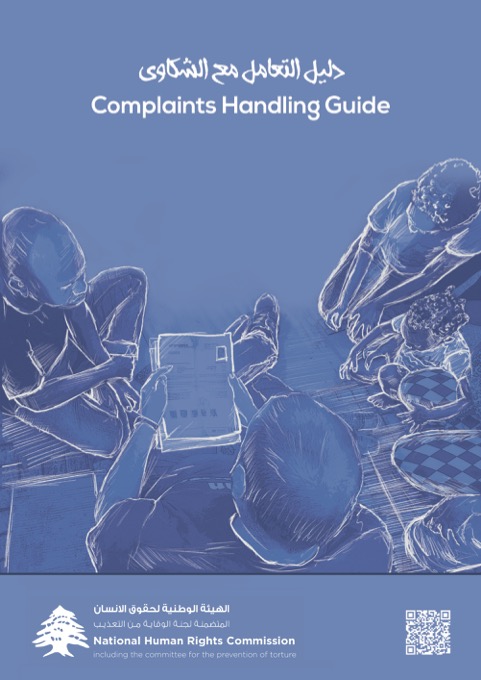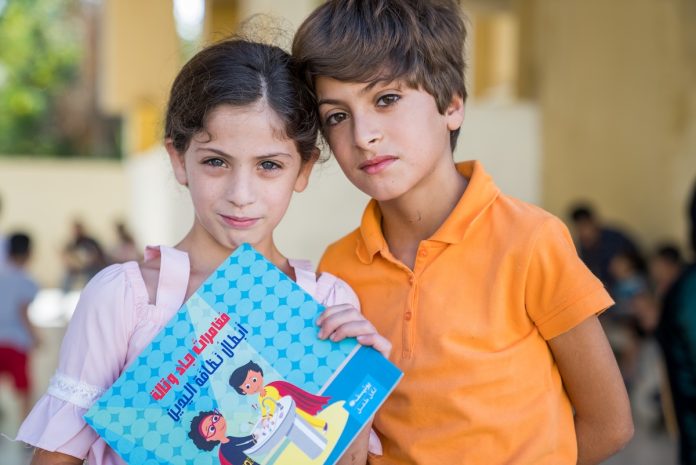The Grievance Committee for Child Victims of Child Rights Violations—established under Article 18 of the Rules of Procedure of the National Human Rights Commission including the Committee for the Prevention of Torture (NHRC-CPT)—announces its role as the national complaints mechanism dedicated to addressing violations of children’s rights in Lebanon.
The Committee operates based on the principle of the best interests of the child, and ensures that children’s views are respected and given appropriate weight according to their age and maturity, in line with the Convention on the Rights of the Child (Law No. 260/1990).
Call for Contributions: Children’s Participation in Drafting a New Optional Protocol to the Convention on the Rights of the Child
The Grievance Committee for Child Victims of Child Rights Violations, operating within the NHRC, is proud to support the global initiative of the Open-ended Intergovernmental Working Group to draft a new Optional Protocol to the Convention on the Rights of the Child, focusing on access to justice and remedies for children.
We invite children across Lebanon to participate in this international initiative by sharing their opinions, ideas, and personal experiences on how to improve access to justice and ensure their rights are protected in ways that are tailored to their needs.
The NHRC has already submitted its official contribution to the Office of the United Nations High Commissioner for Human Rights on April 1, 2025, in response to the call for inputs from the Open-ended Intergovernmental Working Group exploring the possibility of a new Optional Protocol.
How Can Children Participate?
-
By submitting their views and proposals using the attached report template.
-
By using the participation guide and child-friendly information sheet to help express themselves.
Deadline for submissions: June 8, 2025
Submission Instructions
Please send your contributions by June 8, 2025 to:
📧 ohchr-children@un.org
CC: helen.griffiths@un.org
Or to the NHRC email: info@nhrclb.org
A Call to Schools, Civil Society Organizations, and All Partners Working with Children in Lebanon
The National Human Rights Commission calls on all schools, civil society organizations, educators, community centers, and partners working with children in Lebanon to encourage children and students to take part in this important opportunity.
This is a unique chance for children to have their voices heard internationally and contribute to the development of a legally binding instrument that enhances their rights and dignity.
We ask all concerned stakeholders to:
-
Inform children and their families about this call.
-
Help them understand their rights under the Convention on the Rights of the Child.
-
Support them in preparing and submitting their contributions freely and safely.
Privacy and Safety
-
No information shared with us will be shared with others, including your personal details or contact information.
-
Please do not write your full name; only your first name is needed.
-
This helps us protect your right to privacy.
For more information or support, contact:
📧 info@nhrclb.org
📞 03923456
Background
In accordance with Article 12 of Law 62/2016, the NHRC has established four permanent committees:
-
International Humanitarian Law Committee
-
Grievance Committee for Child Victims of Child Rights Violations
-
Committee for the Protection of the Rights of Persons with Disabilities
-
Committee to Combat Human Trafficking
The Grievance Committee for Child Victims of Child Rights Violations serves as the national complaint mechanism for children who are victims of child rights violations. It is guided by the best interests of the child and ensures respect for children’s rights and views according to their age and maturity.
Its core tasks include (but are not limited to):
A. Receiving complaints submitted by children directly, their guardians, or others, while ensuring no harm is caused by intermediaries acting against the child’s best interests.
B. Investigating, reviewing, and resolving complaints without undue delay.
C. Holding hearings and inviting relevant parties, witnesses, experts, or anyone else who could be helpful.
D. Proactively addressing any detected violations of children’s rights.
E. Requesting, through the NHRC Board, urgent protective measures from judicial authorities when necessary to prevent harm to the child.
F. If a violation is confirmed, recommending that the NHRC Board refer the case to judicial authorities, ensuring follow-up at all stages.
G. Promoting and monitoring implementation of the Convention on the Rights of the Child and its Optional Protocols.
H. Coordinating with all child rights stakeholders, while safeguarding the Commission’s independence.
Early Childhood Education, Free Pre-Primary and Free Secondary Education
In September 2025, representatives of governments, child-led and child-focused organizations, and children themselves will meet in Geneva, Switzerland, to discuss:
-
Early childhood education
-
Free pre-primary education
-
Free secondary education
We are working to ensure that children’s views are included in these discussions. Your input is vital to making sure your rights are respected!
We Want to Hear from You:
-
What makes it hard for children to attend pre-primary school? How does this affect them?
-
What makes it hard for children to go to secondary school? What is the impact?
-
Do some children face greater challenges than others in accessing public pre-primary or secondary schools?
-
What should governments do to ensure all children can access free public education at pre-primary and secondary levels?
What Should You Know Before Answering?
What are children’s rights?
These are promises made by governments to ensure that children and young people under 18 can live safe, good lives wherever they are.
The Convention on the Rights of the Child explains who children are, what their rights are, and what responsibilities governments have.
All rights are interconnected and equally important—and cannot be taken away.
What is the right to education?
Education is one of these rights.
All children and youth have the right to education, regardless of who they are—for example, their race, gender, disability, whether they are detained, or if they are refugees.
Education supports growth, health, and safety, prepares children for jobs and participation in society.
Yet, according to UNESCO, 251 million children and young people around the world are out of school.
Are You in School?
-
Are you attending pre-primary education (kindergarten, nursery, etc.)?
-
Are you attending primary school?
-
Are you attending secondary school?
How Will My Views Be Used? What Happens Next?
Your views will be compiled into a child-focused report, to be published online in July–August 2025 and shared with governments, child rights organizations, and UN bodies attending the September 2025 meeting.
An official meeting update and a child-friendly version will be released in June–July 2026.
You can also visit the UN OHCHR website for updates.
Useful Links
هذه المقالة متاحة أيضًا بـ: العربية (Arabic) Français (French)



